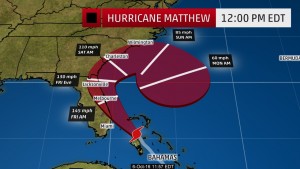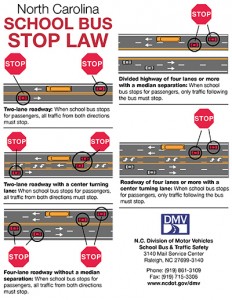Mandatory Water Restrictions
October 21st, 2016 Brunswick, New Hanover, and Pender counties are all experiencing mandatory water restrictions that were put into place on October 13th due to a pipe break in Riegelwood. The Lower Cape Fear Water and Sewer Authority’s pipe supplies water to utilities to all three of these counties. This pipe break is affecting areas such as Wrightsville Beach, Carolina Beach, Kure Beach, Leland, Wilmington, etc.
Brunswick, New Hanover, and Pender counties are all experiencing mandatory water restrictions that were put into place on October 13th due to a pipe break in Riegelwood. The Lower Cape Fear Water and Sewer Authority’s pipe supplies water to utilities to all three of these counties. This pipe break is affecting areas such as Wrightsville Beach, Carolina Beach, Kure Beach, Leland, Wilmington, etc.
The break in the 48-inch pipe is nearly the size of a football and that break alone is causing 12.5 million gallons of raw water to spill through it daily.
One of the main reasons that Brunswick County has declared a state of emergency and is pleading with public water customers to reduce water usage is to be sure there is enough water for emergency needs such as firefighting efforts and hospital uses.
Here are a few tips on how to help conserve water:
- Limit your shower time
- Turn off water when not directly using while brushing teeth, washing hands, washing dishes, etc.
- Only run dishwashers or washing machines when you have a completely full load
- Limit the number of times you flush the toilet daily
The water flow from Kings Bluff Pump has been cut in half by the break, going from about 24 million gallons of water flow a day to nearly 12 million gallons of water a day. A temporary patch would be ideal in this situation, but they were not able to successfully patch it when attempting to on Wednesday morning.
Since the patch was unsuccessful, crews began constructing a temporary bypass on Thursday morning so that water would go around the break and allow it to keep flowing until the break itself is repaired. This project is expected to be completed sometime next week. The main delay in this repair is that the surrounding counties do not have parts that this break is requiring to fix, so they are waiting on parts to be flown in from other parts of the country.
Car washes have made attempts to save water by reducing their number of open hours each day and the city of Wilmington is holding back on street sweeping and power washing in some areas until the pipe is repaired. If you do see areas throughout the city using their irrigation systems still during this mandatory water restriction, it may be because their water comes from a pond.
Brunswick County Emergency Services are preparing for the worst and are there to help you if needed. They have 480,000 gallons of bottled water on hand, which is equivalent to four days worth of water for residents. Please be safe and make sure you follow all mandatory water restrictions in your area!
By Kimberlin S. Murray, Legal Assistant at Collins Law Firm

 North Carolina residents have been keeping a close eye on Hurricane Matthew this past week. On Monday, Governor Pat McCrory issued a state of emergency for 66 North Carolina counties, including New Hanover County, Brunswick County, and Pender County. This hurricane was supposed to directly hit the coast, but the latest forecast track shows that this powerful storm is expected to make a sharp turn to the east as it nears the North Carolina Coast. This sharp turn is caused by an upper level trough which will move towards the eastern United States and force the hurricane away from moving up the east coast. It will also likely weaken into a Category 1 hurricane by this point.
North Carolina residents have been keeping a close eye on Hurricane Matthew this past week. On Monday, Governor Pat McCrory issued a state of emergency for 66 North Carolina counties, including New Hanover County, Brunswick County, and Pender County. This hurricane was supposed to directly hit the coast, but the latest forecast track shows that this powerful storm is expected to make a sharp turn to the east as it nears the North Carolina Coast. This sharp turn is caused by an upper level trough which will move towards the eastern United States and force the hurricane away from moving up the east coast. It will also likely weaken into a Category 1 hurricane by this point. You may want to think twice before using a fake ID in New Hanover or Pender County from now on. Starting October 1, you will face more penalties in court if you are caught using a fake ID.
You may want to think twice before using a fake ID in New Hanover or Pender County from now on. Starting October 1, you will face more penalties in court if you are caught using a fake ID. This week, many North Carolina children said goodbye to their summer break and began the 2016-2017 school year. For many students, this involves riding a school bus to and from school. There are thousands of school buses traveling North Carolina highways daily, which means that it is incredibly important for drivers to pay attention to the road and avoid distractions in order to keep everyone safe.
This week, many North Carolina children said goodbye to their summer break and began the 2016-2017 school year. For many students, this involves riding a school bus to and from school. There are thousands of school buses traveling North Carolina highways daily, which means that it is incredibly important for drivers to pay attention to the road and avoid distractions in order to keep everyone safe. The National Center for Statistics and Analysis reports that approximately 1200 are injured and about 8 are killed every day in the U.S. in car accidents involving a driver who has been distracted. Drivers can be distracted by activities such as texting; eating and drinking; talking to passengers; grooming; using in-vehicle technology; etc.
The National Center for Statistics and Analysis reports that approximately 1200 are injured and about 8 are killed every day in the U.S. in car accidents involving a driver who has been distracted. Drivers can be distracted by activities such as texting; eating and drinking; talking to passengers; grooming; using in-vehicle technology; etc. With an expected crowd of 20,000 flocking to Wrightsville Beach and neighboring hot spot Masonboro Island this July 4th weekend, local law enforcement are going to be increasing their presence as well. This year will see the cooperation of multiple law enforcement agencies working to ensure the safety of beachgoers and boaters alike. The Wrightsville Beach Coast Guard Station at the island’s south end will be the site of an incident command center operated by a joint force of Wrightsville Beach police officers and deputies from the New Hanover County Sherriff’s office, tasked with covering both the Wrightsville beachfront and Masonboro Island. Along with keeping an eye out for underage drinking and disruptive behavior, officers will also be seeking to target illegal water taxi service, for which fines can range up to $10,000 for captains ferrying without certification.
With an expected crowd of 20,000 flocking to Wrightsville Beach and neighboring hot spot Masonboro Island this July 4th weekend, local law enforcement are going to be increasing their presence as well. This year will see the cooperation of multiple law enforcement agencies working to ensure the safety of beachgoers and boaters alike. The Wrightsville Beach Coast Guard Station at the island’s south end will be the site of an incident command center operated by a joint force of Wrightsville Beach police officers and deputies from the New Hanover County Sherriff’s office, tasked with covering both the Wrightsville beachfront and Masonboro Island. Along with keeping an eye out for underage drinking and disruptive behavior, officers will also be seeking to target illegal water taxi service, for which fines can range up to $10,000 for captains ferrying without certification. Memorial Day is right around the corner, and for those of us near the coast, this means considerably higher traffic along our thoroughfares as vacationers flock to the beach for the holiday weekend. Ranking as one of the top ten most visited states for domestic travel, NC commonly experiences increased roadway congestion. What this weekend should also remind us of, however, is the extreme importance of automobile safety as our loved ones submit themselves to the mercy of their fellow drivers among our state’s highways. This sentiment is echoed by Governor Pat McCrory, who has officially declared May Seat Belt Safety Awareness Month. At 42% percent, almost half of passenger vehicle fatalities last year can be attributed to drivers or passengers not wearing seat belts.
Memorial Day is right around the corner, and for those of us near the coast, this means considerably higher traffic along our thoroughfares as vacationers flock to the beach for the holiday weekend. Ranking as one of the top ten most visited states for domestic travel, NC commonly experiences increased roadway congestion. What this weekend should also remind us of, however, is the extreme importance of automobile safety as our loved ones submit themselves to the mercy of their fellow drivers among our state’s highways. This sentiment is echoed by Governor Pat McCrory, who has officially declared May Seat Belt Safety Awareness Month. At 42% percent, almost half of passenger vehicle fatalities last year can be attributed to drivers or passengers not wearing seat belts. The Good Samaritan Law (now effective in 20 states) went into effect in North Carolina on April 9, 2013. The basis for the law is overdose prevention and survival – get help, CALL 911! Individuals who experience or witness an overdose can now seek help for the victim without being prosecuted for small amounts of drugs/drug paraphernalia, or alcohol for persons under 21 years old under N.C. Gen. Stat. § 18B-302.2 Medical treatment; limited immunity. Additionally, as of August 1, 2015, a person who seeks medical assistance for someone experiencing a drug overdose cannot be considered in violation of probation, condition of parole, or post-release. Likewise, the victim is protected. In order for the immunity to apply, however, the 911 caller must provide his or her name, and act in good faith when seeking assistance, and reasonably believe that he or she is the first person to call for help.
The Good Samaritan Law (now effective in 20 states) went into effect in North Carolina on April 9, 2013. The basis for the law is overdose prevention and survival – get help, CALL 911! Individuals who experience or witness an overdose can now seek help for the victim without being prosecuted for small amounts of drugs/drug paraphernalia, or alcohol for persons under 21 years old under N.C. Gen. Stat. § 18B-302.2 Medical treatment; limited immunity. Additionally, as of August 1, 2015, a person who seeks medical assistance for someone experiencing a drug overdose cannot be considered in violation of probation, condition of parole, or post-release. Likewise, the victim is protected. In order for the immunity to apply, however, the 911 caller must provide his or her name, and act in good faith when seeking assistance, and reasonably believe that he or she is the first person to call for help. When one files a charge of discrimination with the Equal Employment Opportunity Commission (EEOC) it then becomes the agency’s responsibility to determine whether or not there is reason to believe that discrimination took place. Both the Charging Party (complainant) and the Respondent (defendant) are given an opportunity to provide information and explain what happened. The EEOC requests that the Respondent submit a statement of position, or position statement, with supporting evidence to prove why they do not deserve to be charged. Here are the guidelines, as recommended by the EEOC, on how to create an effective position statement:
When one files a charge of discrimination with the Equal Employment Opportunity Commission (EEOC) it then becomes the agency’s responsibility to determine whether or not there is reason to believe that discrimination took place. Both the Charging Party (complainant) and the Respondent (defendant) are given an opportunity to provide information and explain what happened. The EEOC requests that the Respondent submit a statement of position, or position statement, with supporting evidence to prove why they do not deserve to be charged. Here are the guidelines, as recommended by the EEOC, on how to create an effective position statement: The FBI is now more serious than ever about animal cruelty and the consequences associated against these crimes. As of January 1st of this year, the FBI will now collect data on animal cruelty crime through the National Incident-Based Reporting System (NIBRS). Animal cruelty will be classified as a Class A felony, treated as crimes such as homicide, arson, and assault. There will be four categories in which animal abuse crimes can be filed: simple or gross neglect, intentional abuse and torture, organized abuse (i.e., dog fighting), and animal sexual abuse.
The FBI is now more serious than ever about animal cruelty and the consequences associated against these crimes. As of January 1st of this year, the FBI will now collect data on animal cruelty crime through the National Incident-Based Reporting System (NIBRS). Animal cruelty will be classified as a Class A felony, treated as crimes such as homicide, arson, and assault. There will be four categories in which animal abuse crimes can be filed: simple or gross neglect, intentional abuse and torture, organized abuse (i.e., dog fighting), and animal sexual abuse.